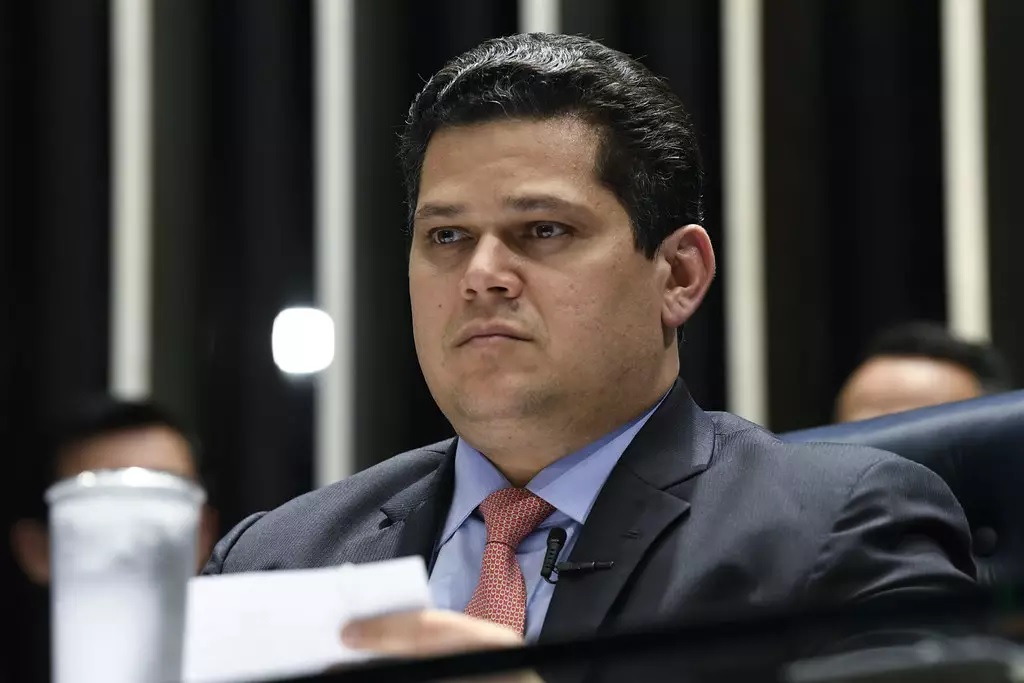RIO DE JANEIRO, BRAZIL – Davi Alcolumbre, president of the Senate, has decided to keep confidential the receipts supporting his spending of the so-called parliamentary quota. At least 12 senators, including Flavio Bolsonaro, President Jair Bolsonaro‘s son, have refused requests made via the Access to Information Act on the same grounds.

The refusal to disclose spending details is based on a 2016 report, produced under Renan Calheiros’ term as Senate President. The document states that any senator may refuse to submit an invoice, when deemed necessary, for reasons involving their own safety.
Estado newspaper had access to a list with 60 denied requests based on this opinion, including at least 12 senators. Besides Flávio Bolsonaro and Davi Alcolumbre, Telmário Mota, Omar Aziz, Randolfe Rodrigues, and Eduardo Braga are listed. The remaining names were not identified in the list obtained by the report.
The parliamentary quota is the money used for senators to pay expenses related to airfares, postal services, maintenance of support offices for parliamentary activity, accommodation, fuel, among others. The amount allowed for each varies according to the senator’s state of origin – the further away from Brasília, the higher the quota.
According to Estado, Alcolumbre is fighting in the courts to ensure that senators keep confidential receipts used to justify the use of their quota. A class action brought before the Federal Court in Minas Gerais challenges the lack of transparency and asks for the annulment of the opinion of Renan Calheiros’ administration.
The three Senate lawyers called upon to defend Alcolumbre’s case are justifying the fact that the chamber has been submitting copies of receipts for office expenses on its website since July. The decision, however, is not retroactive. That is, all receipts for expenses incurred before July remain confidential.
Sought to explain the refusal to disclose receipts, Flávio Bolsonaro’s advisors first asked if the documents were not already on the Senate’s website. When told that they were not, it said: “that it would check the motive with the area in charge”. Since taking office, Flavio has spent R$102,900 (US$26,000) of his parliamentary quota, according to the Chamber’s website. However, until yesterday night, receipts related to the Senator’s expenses incurred from February to May were not available.

Senator Eduardo Braga’s advisory notice stated that the Senate website already provides detailed information on spending and, if determined by the Senate president, a greater detailing – such as the disclosure of receipts -, “it will be pursued without any problem”.
Randolfe Rodrigues, also on the list of those senators who refused access to their receipts via the Access to Information Act, provided the documents when requested by the report. He said he disagrees with the Senate’s decision on confidentiality.
Davi Alcolumbre’s press office confirmed that the guidance is to provide transparency on receipts only as of July and to keep the documents relating to previous months confidential.
According to the advisor, this decision was taken jointly at a meeting of Senate leaders. Their understanding was that the Access to Information Act would not be breached when the data was released in July, he said.
Since the Senate President denied access to receipts, associations working in the area of transparency have been demanding a stronger position from senators on compliance with the Access to Information Act.
Gil Castello Branco, founder, and secretary-general of the Contas Abertas (“Open Accounts”) Association said that there is no “semi-transparency”. “Transparency cannot depend on the willingness of one or other senator. All receipts should be published. I believe that the receipts should be published retroactively. All senators must comply with the Access to Information Act.”
The report sought out the other legislators on the list, however, they did not react until its publication.

